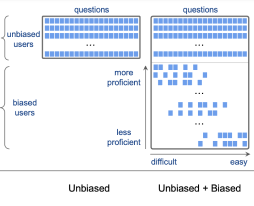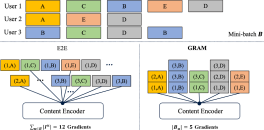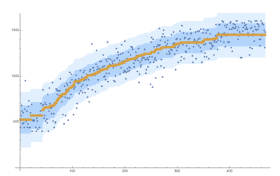What you know vs. what you don’t know
Knowledge Tracing model opens up a data-driven way of preparing for tests.
How much time and money are enough?
Many standardized tests are high-stakes; deterministic of college admission, job application, and more. When it comes to preparing for them, test takers face harsh realities. Consider the SAT, a standardized test widely used in college admissions. You should be ready to pay at least $800 for in-person programs and between $50 and $80 per hour for 1:1 online tutoring. Online video courses start at $499 and can be up to $999.
Feeling startled by the price? Many turns to self-guided study with a prep book. Yes, this is the best solution, price-wise. But prep books are 925 pages and have 2680 practice questions.
Can’t there be a better way? A data-driven way of preparing for tests, not pouring in endless time and money. We wanted to help those who struggle with test prep. And there comes R.test with the Knowledge Tracing model.
Tracing your knowledge
Knowledge Tracing models take various approaches to accurately assess the student’s current knowledge state. The most representative task is predicting whether or not a student will respond correctly to a question, which is what we are specialized at. Say you solved up to Question 10, then the KT model can predict how you would perform on Question 11, Question 12, and so on.
Wondering how this is even possible? Our KT model integrates a contemporary deep learning model called Transformers and applies it to student response data. While you solve questions, it captures the complex relations between knowledge components embedded in the question and your responses to determine your state of knowledge and skills.
What you know vs. what you don’t know
Which would you spend more time on? It must be ‘what you don’t know’, obviously. This is exactly the benefit of Knowledge Tracing. Knowing how you would perform on unsolved questions, you can prioritize your time in addressing the problems that you haven’t mastered yet. Why waste time solving problems you will 100% answer correctly?
We utilize this ‘correctness rate’ to recommend questions to our users that will be most helpful in boosting their scores. For example, the “Top 3 Questions to Boost Your Score” part in our report picks out the questions you are likely to miss but are relatively easy.
Personalized report with personalized strategies
In addition to the correctness rates, R.test’s report contains more than 10 insights with strategies to help you tackle your weak spots with minimal effort. Get a personalized report that tells everything about you. You will know when you see it.
”R.test’s report is totally different from other reports I have seen before. More than you can imagine. Others only give a score, but this gives you a detailed diagnostic and tells you what exactly you need to work on.”
Let R. test set a smart path for you! Discover your strengths and weaknesses with R. test Let R. test set a smart path for you! Discover your strengths and weaknesses with R. test
Related Research

Addressing Selection Bias in Computerized Adaptive Testing: A User-Wise Aggregate Influence Function Approach
Soonwoo Kwon, Sojung Kim, Seunghyun Lee, Jin-Young Kim, Suyeong An, Kyuseok Kim
UPDATED: 23 AUG, 2023

GRAM: Fast Fine-tuning of Pre-trained Language Models for Content-based Collaborative Filtering
Yoonseok Yang, Kyu Seok Kim, Minsam Kim, Juneyoung Park
UPDATED: 6 MAY, 2022

Condensed Discriminative Question Set Generation for Accurate and Reliable Exam Score Prediction
Jung Hoon Kim, Jineon Baek, Chanyou Hwang, Chan Bae & Juneyoung Park
UPDATED: 1 FEB, 2021